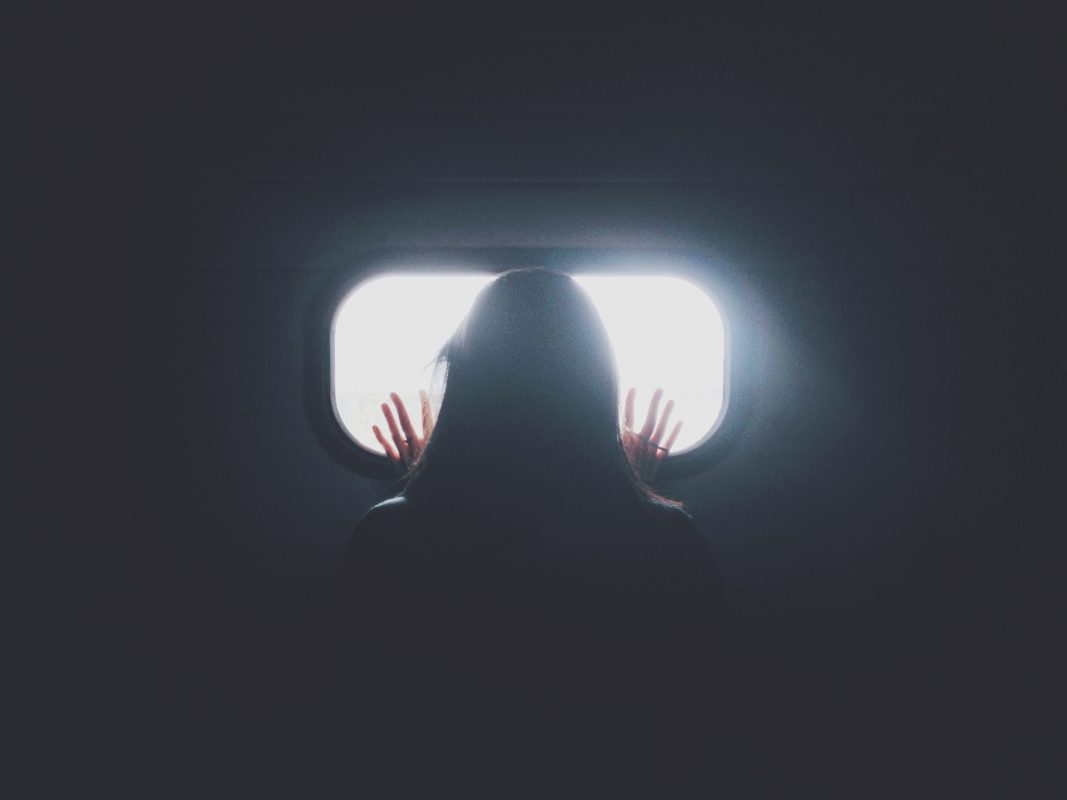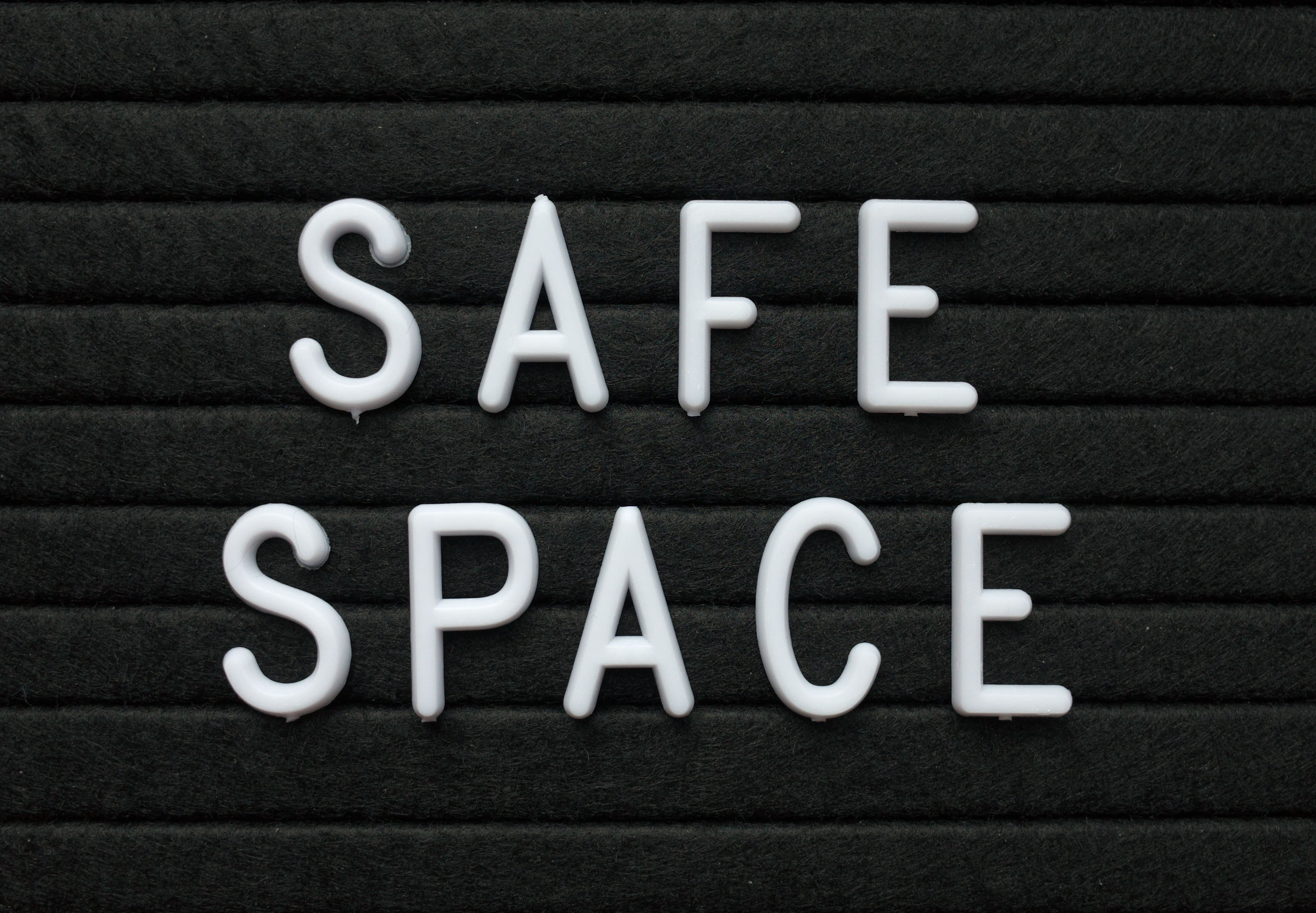Art and Culture
Collision with Reality: What Depth Psychology Can Tell us About Victimhood Culture
Personal or collective attitudes that create an invitation to victimhood and infirmity can alter what we expect for ourselves.

When Carl Jung was a 12-year-old schoolboy, he was shoved to the ground by another child, hitting his head on the pavement, and nearly losing consciousness. Instantly, he grasped the opportunities created by this attack.
At the moment I felt the blow, the thought flashed through my mind: “Now you won’t have to go to school anymore.” I was only half unconscious, but I remained lying there a few moments longer than was strictly necessary, chiefly in order to avenge myself on my assailant….
From this point forward, Jung began having fainting spells whenever he returned to class or attempted homework. For six months, he did not attend school. His worried parents consulted doctors, and sent him away to convalesce. Jung described this period as “a picnic.” Beneath the giddiness, however, he sensed something was amiss.
I frittered away my time with loafing, collecting, reading, and playing. But I did not feel any happier for it; I had the obscure feeling that I was fleeing from myself.
Eventually, Jung forgot how his infirmity arose. His invalid status was taken for granted, and he didn’t question it or concern himself with a remedy, until he overheard a conversation that shook him into awareness.
Then one day a friend called on my father. They were sitting in the garden and I hid behind a shrub, for I was possessed of an insatiable curiosity. I heard the visitor saying to my father, “And how is your son?” “Ah, that’s a sad business,” my father replied. “The doctors no longer know what is wrong with him. They think it might be epilepsy. It would be dreadful if he were incurable. I have lost what little I had, and what will become of the boy if he cannot earn his own living?”
I was thunderstruck. This was the collision with reality.
“Why, then, I must get to work!” I thought suddenly.
At that moment, Jung became a “serious child.” He went straight to his father’s study and began working intensely on his Latin grammar.
After ten minutes of this I had the finest of fainting fits. I almost fell off the chair, but after a few minutes, I felt better and went on working. “Devil take it, I’m not going to faint,” I told myself, and persisted on purpose. This time it took about fifteen minutes before the second attack came. That, too, passed like the first. “And now you must really get to work!” I stuck it out, and after an hour came the third attack. Still I did not give up, and worked for another hour, until I had the feeling that I had overcome the attacks. Suddenly I felt better than I had in all the months before. And in fact the attacks did not recur. From that day on I worked over my grammar and other schoolbooks every day. A few weeks later I returned to school, and never suffered another attack, even there. The whole bag of tricks was over and done with! That was when I learned what a neurosis is.1
An awkward and aggressive boy who was not well-liked by classmates or teachers, Jung must have welcomed the opportunity to escape from school. At childhood’s twilight hour, faced with the looming demands of adolescence, Jung withdrew from the world. For a while, his fate hung in the balance, as he drifted towards the possibility of permanent, self-imposed marginalization and infirmity.
In my therapeutic work with mothers of teens and tweens, I am a frequent second-hand witness to children who, seeking to avoid the developmental demands of approaching independence, cling to their frailties in much the same way 12-year-old Jung did. Negotiating such an impasse as a parent can be particularly difficult, as current cultural trends offer unwitting support for young people to claim oppression and illness.
Personal or collective attitudes that create an invitation to victimhood and infirmity can alter what we expect for ourselves. Embracing a status of oppression or affliction can be helpful, as it marshals needed care. However, when held onto too long, it can invite disengagement from life, and an avoidance of one’s fate. Worryingly, it also has negative implications for personal mental health, as it may foster a sense of helplessness.
Locus of Control
Thinking of ourselves as oppressed or infirm may inadvertently cultivate what psychologists call an external locus of control. Locus of control is a psychological concept articulated in the 1950s by Julian Rotter. Those with an internal locus of control experience themselves as able to influence outcomes that affect them. Those with an external locus of control feel that most of what happens to them is beyond their ability to affect.
Though both external and internal loci of control confer advantages and disadvantages, research has shown that having an internal locus of control is associated with less stress and better health, whereas having an external locus of control is correlated with anxiety disorders. Importantly, an internal locus of control appears to be a decisive factor in determining whether one will be psychologically resilient. As a society, therefore, it is in our interest to cultivate an internal locus of control, and indeed, the popular notions of grit and mindset are undergirded by locus of control theory. However, some environments are fostering its opposite.

Victimhood Culture
A mother in my practice recently shared that her child’s seventh grade year began with the teacher having students share their preferred pronouns. Immediately afterwards, this mother’s 12-year-old daughter began identifying as genderfluid and became preoccupied with her new status as a member of an oppressed minority. Though the teacher undoubtedly meant to communicate tolerance and acceptance, she inadvertently created an inducement to victimhood.
Some current cultural trends award increased social status to those perceived as victims. Sociologists have posited that a new moral culture of victimhood is developing on college campuses. In such a culture, being a victim raises one’s standing and confers virtue, in part because it mobilizes protection and support from powerful third parties. The increased status of victimhood may account for the rise in “digital self-harm” that researchers have identified when teens cyber-bully themselves.
Victimhood culture rewards us when we are aggrieved, helpless, and weak. It therefore encourages us to experience ourselves as being at the mercy of external forces beyond our control, which, as we have seen, may have negative consequences for mental well-being.
Embracing Illness
In addition to a moral culture of victimhood, a related tendency encourages us to think of ourselves as unwell. A recent piece entitled “Turning Childhood into a Mental Illness” in Spiked Online notes the trend to medicalize childhood by assigning diagnoses to ordinary distress, which encourages children to perceive themselves as ill:
The relationship between this new narrative of illness and its impact on young people is a dialectical one. The narrative doesn’t only frame the way children are expected to experience everyday problems – it also acts as an invitation to infirmity.
Just as young Carl derived moral and practical gain from his infirmity, in certain subcultures today, having a mental health diagnosis brings with it perceived advantages. On Tumblr, there are communities of those who have diagnosed themselves with dissociative identity disorder. Many Tumblr users proudly list their mental health conditions in their profiles, including anxiety, depression, borderline personality disorder, and PTSD. Author Angela Nagle has named this Tumblr phenomenon “the cult of suffering, weakness, and vulnerability.” In addition to a moral culture of victimhood, a related tendency encourages us to think of ourselves as unwell.
The tendency towards self-diagnosis on Tumblr mirrors currents in the wider culture as the number of mental health disorders have proliferated. In the late ‘70s, the first Diagnostic and Statistical Manual contained roughly two dozen diagnostic categories. The most recent revision to this catalogue of modern maladies lists 265.
A diagnosis carries with it a sense of absolution. It isn’t our fault that we have anxiety or depression. Forces beyond our control have conspired against us. Psychiatric diagnosis has myriad practical benefits. It can contextualize and normalize distress, reduce stigma, and point the way toward intervention and treatment. However, when our diagnosis becomes an important part of who we are, we are encouraged to abdicate responsibility for our plight. We are adrift on life’s turbulent currents, without blame, but also without agency. This fosters a sense of helplessness, which in turn can lead to increased anxiety.
Anxiety
An October 2017 New York Times article entitled “Why Are More American Teenagers Than Ever Suffering From Extreme Anxiety?” looked at the rising tide of teen anxiety in the United States. Increasing academic pressures, the advent of smart phones, and ubiquitous social media use were explored as potential contributors to increasing teen anxiety, but the article implicated another factor as well – school cultures that enable young people to avoid those things that make them uncomfortable. Special educational 504 plans address student anxieties by allowing kids to leave class early, use special entrances, and seek out safe spaces when they are feeling overwhelmed. A therapist interviewed for the Times article worries that these kinds of “avoidance-based” accommodations only make anxiety worse by sending the message to kids that they are too fragile to handle things that make them uncomfortable.
Essentially, such adaptations to anxiety cultivate an external locus of control, teaching young people that they are not capable of handling challenge, and encouraging them to believe that the world around them ought to be altered to meet their needs. This primes people to expect life to conform to their expectations, and to feel crushed or outraged when it doesn’t. It promotes fragility, as young people wait helplessly to be acted upon.
The Times article profiles a New Jersey high school that has developed a dedicated program to meet the needs of anxious students. It relates an encounter between Paul Critelli, one of the program’s teachers, and a withdrawn, anxious student who claimed he had nothing to do.
Critelli looked at him incredulously. “Dude, you’re failing physics,” Critelli said. “What do you mean you don’t have anything to do?”
“There’s nothing I can do — I’m going to fail,” the student mumbled.
Critelli’s student evidences an extreme external locus of control. He has collapsed utterly into victimhood, to the point that he is not able to imagine a way to advocate for himself or affect the outcome of his grade.
Avoiding Our Fate
If anxiety is our chief malady, avoidance is its coddling nurse, always ready to assure us we need not risk confrontation with that which makes us uncomfortable. When we heed our fear, we stay safe, but we also stay out of life. Jung never forgot about the dangers of avoidance. Some 25 years after his period of school refusal, Jung wrote the following:
Life calls us forth to independence, and anyone who does not heed this call because of childhood laziness or timidity is threatened with neurosis. And once this has broken out, it becomes an increasingly valid reason for running away from life and remaining forever in the morally poisonous atmosphere of infancy.3
I’ve seen the adults that teens who withdraw from the life’s arena become. In my consulting room, they speak of lives unlived, and suffering unredeemed. It isn’t just that the world misses out on their talents and productive capacity. (Though that is no small loss – imagine if 12-year-old Carl hadn’t overhead his father’s conversation that day.) It’s that the story they came into the world to tell doesn’t get told.
The Times piece profiled an appealing teen who, like Jung, struggled with school avoidance. Unlike Jung, however, this teen eventually dropped out of school after failing to overcome her anxiety. According to the Times, she spends most of her days at home alone texting friends, relieved never to have to set foot in a high school again. The issue here isn’t just about kids who can’t get to class. The stakes are higher, and have to do with a life of meaning and purpose on its way to being forfeited.
Jung noted that “a neurosis is always a substitute for legitimate suffering.”4 His childhood fainting spells served as a substitute for the very legitimate suffering of finding his way into adolescence and facing his fate as a poor clergyman’s son who would need to establish a profession and make a living. The word “suffer” comes from a Latin word meaning to bear, to carry, or to endure. When we suffer our fate rather than avoiding it, we become actors in our own drama. Suffering becomes part of our personal story, that with which we must wrestle. In the words of Rilke, it is a “harsh hand that kneads us,” changing us and leaving us “proud and strengthened,” even in defeat. When, on the other hand, we externalize and medicalize our pain, we run the risk of becoming its hapless victim.
The Hero’s Task
Thousands of years before anyone spoke of an “internal locus of control,” the poets and bards of earlier epochs knew the decisive importance of walking toward one’s fate. The one who did this was known as the hero. Whoever daily confronts uncertainty and fear, no matter how mundane the gesture, is heroic in the psychological sense. “We each have an appointment with ourselves, though most of us never show up for it,” writes Jungian analyst James Hollis. “Showing up, and dealing with whatever must be faced in the chasms of fear and self-doubt, that is the hero’s task.”5
In contrast to the avoidant teens profiled in the Times, consider the words of Marcus Aurelius. During a military campaign against Barbarian invaders, the emperor and stoic philosopher wrote the following lines to himself nearly two thousand years ago:
At first day’s light have in readiness, against disinclination to leave your bed, the thought that, “I am rising for the work of man.” Must I grumble at setting out to do what I was born for, and for the sake of which I have been brought into the world? Is this the purpose of my creation, to lie here under the blankets and keep myself warm?6
Creating a society in which we are encouraged to confront anxiety and face difficult realities matters not just for the mental health of individuals, but also for our collective well-being. In the world that soon awaits us, humankind will desperately need those individuals willing to rise from their beds. The challenges that loom ahead will require us to set aside timidity, weakness, and victimhood and claim instead agency and boldness, no matter how grim the odds.
References
1 Jung, C. G., & Jaffe, A. (1989). Memories, dreams, reflections. New York: Vintage Books, pp. 30-32.
2 Nagle, Angela. Kill all normies: online culture wars from 4chan and Tumblr to Trump and the alt-Right. Zero Books, 2017, p. 73.
3 Jung, C. G. (1970). Symbols of transformation: an analysis of the prelude to a case of schizophrenia. 2nd ed. transl. by R.F.C. hull. Princeton, NJ: Princeton University Press, para. 461.
4 Jung, C. G. (1973). Psychology and religion: west and east. Princeton, NJ: Princeton University Press, para. 129.
5 Hollis, J. (2004). Mythologems: incarnations of the invisible world. Toronto: Inner City Books, p. 62.
6 Antoninus, M. A., & Staniforth, M. (1986). Meditations. Harmondsworth, Middlesex: Penguin Books, p. 77.






